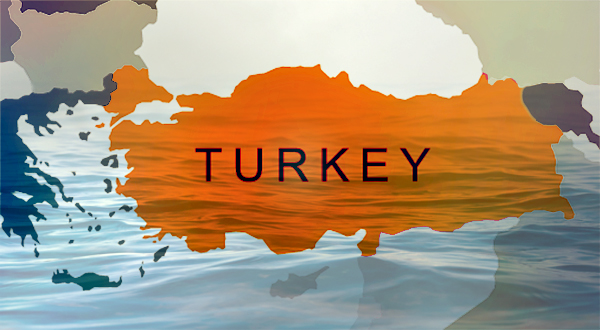The forces driving Turkey’s resurgence as a superpower
This is the century of Turkey, as David Tonge reminds us in this excellent look under the bonnet of a rising — and reviving — superpower. The confident declaration is not the author’s own, but that of the man who has dominated the stage in Turkey for the past two decades: Recep Tayyip Erdoğan. With the “foreign tutelage shaken off”, says Tonge, Erdoğan promised after his re-election as president in 2023, Turkey will become one of the top 10 countries in the world “in politics, economy, technology, military, diplomacy, all fields”.
Tonge, an author and journalist who has spent time in Ankara as a correspondent, sets out to explore and explain the sinews that bind Turkey together. His focus falls on the “inexorable return of Sunni Islam in general, and the mystical religious orders in particular”, and the way that both are integral today “in the culture of the Turks”.
Many may be surprised by the picture that Tonge paints. After all, since the fall of the Ottoman Empire in 1922, Turkey has often been synonymous with the move towards secularisation, towards religious liberalism that was born from deeply rooted traditions of tolerance and inclusivity.
No one epitomised this more than Mustafa Kemal Atatürk, the man who led Turkey following the traumas of the first world war and dismemberment of an old empire by victorious European powers. Atatürk was determined to drag the Turks into the modern age and saw religion and religious leaders as standing in the way of important reforms. “Sermons are meant to enlighten and guide the people and nothing else”, the former officer said in the early 1920s. Reciting sermons that were hundreds of centuries older, or more, served to “leave the people in a state of ignorance and negligence”.
Despite appearances, argues Tonge, the past century has not been one of declining influence of religion in Turkish society — but quite the opposite, for “Erdoğan’s New Turkey is Old Ottoman rather than neo-Ottoman.” Slowly but surely, Sunni Islam has been restored to its role as a central part of the people’s cultural identity. At the heart of this revival has been the Nakşibendi fraternity and its various branches — Erenköy, Süleymancı, İskenderpaşa, İsmailağa and Menzil — that have entrenched themselves across all Turkish institutions. These are just some of the tarikats — religious orders established to search for divine truth that have been part of Turkish religious, social and cultural life for centuries.
Their hold on the state today is immense. They can and often do mobilise millions, whether at election time, to protest or make their voices heard. Leading figures have vast and intertwining business interests, often cemented by close family ties; some — like Osman Nuri Topbaş, a “fatherly figure” who combines being a religious preacher with a career as a prolific author — have enormous followings on social media, where their pronouncements are followed with passionate interest.

As well as their profound influence in Turkey, the Nakşibendis have extraordinary reach outside the country — in part thanks to the extensive Turkish diasporas around the world, but also because of the effort and energy that has gone into building up infrastructure (and investment) from Central Asia to the Balkans, from Cologne to Brooklyn.
As Tonge explains, the different Nakşibendi groupings sometimes compete with each other for hearts and minds — and well as for access to wallets and the corridors of power. Erdoğan understood this well, flattering spiritual leaders, turning up to their funerals, giving opportune speeches that chime with their messages, and building an all but unassailable power base as a result.
One of the most effective calling cards, however, is the appeal to piety and to purity. In Tonge’s presentation, that has come at a high price. For one thing, that has meant an insistent presentation of a hardline version of Sunni Islam in schools where Darwinism is regularly challenged, or where leading thinkers state that watching television is more dangerous than “to sit with a snake”. For another, it has led to the evolution of parallel structures within government institutions that fuel the Netflix-ready psychodramas that involve scandals, plots and competition that sometimes bring the Turkish state to the brink.
The most obvious and serious of these came in July 2016, when a full-blooded coup attempt took place, during which Turkish air force F-16s strafed the presidential palace. Blame was put squarely on Muhammed Fethullah Gülen, a man who seemed to many in the west as “an example of tolerant Islam, a symbol of Islamic enlightenment”, whose movement had been designated as a terror organisation by the government shortly before the attempted coup. Gülen, who died in October, had once been close to Erdoğan, but after a spectacular falling out had moved into exile in the US, from where he oversaw a multibillion-dollar empire spanning hundreds of schools, dozens of health institutions, trade unions and more.
Tonge is an astute commentator who navigates the thorns of Turkish politics, identity and spiritual beliefs sympathetically and authoritatively. His conclusion, though, is a sad one. “Islam in the Ottoman Empire was rich, deep and variegated.” Sufi orders encouraged diversity and tolerance. Today, though, “the range of Islam on offer” has been reduced as mysticism and kindness has given way to a Nakşibendi world view that is identifiable across all the different fraternities that is strident and “intolerant”.
That should give food for thought, since Turkey is about more than Erdoğan; the “New Turkey has Nakşibendi orders as its bedrock.” They have structures that are broad, ubiquitous and resilient. “They and their millions of adherents will be there to shape . . . and colour the contours of post-secular Turkey.” That is a crucial thing to understand — whether this proves to be the Turkish century or not. Tonge has done a wonderful job in reminding that it is not individuals that matter in history, but the institutions that provide the pillars on which power is built.
The Enduring Hold of Islam in Turkey: The Revival of the Religious Orders and Rise of Erdoğan by David S Tonge Hurst £45, 384 pages
Peter Frankopan is professor of global history at the University of Oxford. His 2023 book ‘The Earth Transformed: An Untold History’, is published by Bloomsbury
Join our online book group on Facebook at FT Books Café, and sign up to receive the FT Weekend newsletter every Saturday morning




